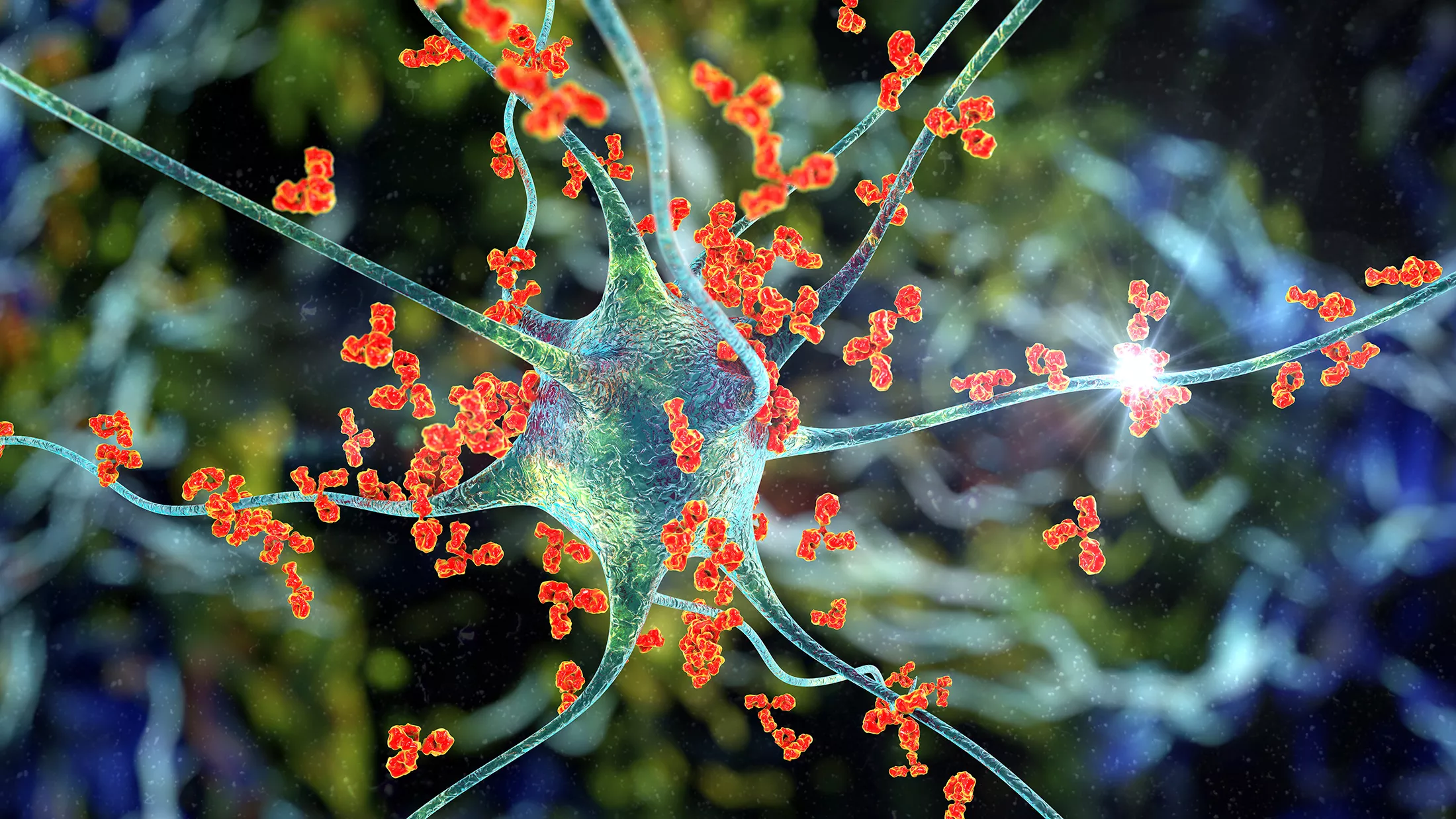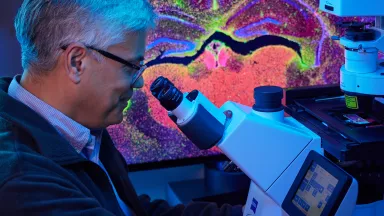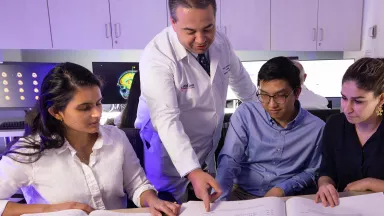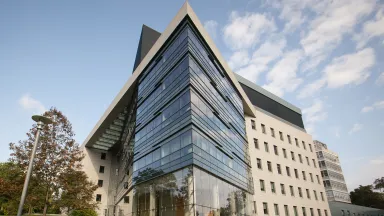Our Approach to Multiple Sclerosis & Neuroimmunological Disorders

The Montefiore Einstein Multiple Sclerosis and Neuroimmunology Center is an internationally recognized leader in managing multiple sclerosis (MS) and has set the standard for delivering comprehensive, high-quality care for MS and other neuroimmunological disorders. Our center was the first integrated clinical care and research center in the world, and it serves as a model for coordinating the multi-system care required for many patients who encompass a broad range of brain and body disorders.
Recognized by the National MS Society as a Center for Comprehensive Care, we are ranked in the top 1% of all hospitals in the nation for neurology and neurosurgery, and Montefiore Einstein’s Burke Rehabilitation Hospital is ranked in the top one percent of all U.S. hospitals for rehabilitation, according to U.S. News & World Report. Additionally, we are recipients of the highest standard for rehabilitation medicine, a three-year designation granted by the Commission on Accreditation of Rehabilitation Facilities (CARF).
Our world-renowned team of specialists incorporates the latest biomedical discoveries and the latest and emerging technologies for the diagnosis and treatment of adults and children with all types of MS, including relapsing-remitting, primary progressive, secondary progressive, associated syndromes, as well as a spectrum of other neuroimmunological disorders, such as neuromyelitis optica spectrum disorder and autoimmune encephalitis. Our multidisciplinary team includes neurologists, neuropsychologists, neuro-ophthalmologists, rehabilitation physicians and therapists, neurogeneticists, urologists, nutrition counselors, physical, occupational, speech and cognitive therapists, as well as MS nurse navigators, all of whom employ a precision medicine approach to optimize neurological function and quality of life, while minimizing or eliminating disease recurrence and associated medical conditions.
Advanced Treatments
We treat patients with the latest and emerging diagnostics, technology and evidence-based treatments for the management of MS-related disease and disability. Precision medicine-guided treatment plans frequently employ a spectrum of immunotherapeutics that capitalize on next-generation agents based on our evolving understanding of the biological underpinnings of MS and other neuroimmunological conditions and associated clinical subtypes. We also specialize in diagnosing patients with severe and concerning symptoms that are infrequent and atypical for a diagnosis of MS, and we continue to explore the promising therapeutic implications of the role of environmental factors, genetic susceptibility, neurodevelopmental deficits and late-onset neurodegeneration in disease occurrence, progression, severity and stabilization.patients, we offer Botox for spasticity and baclofen pump management.
Interdisciplinary Services
Our individualized care and treatment plans include medication infusions, comprehensive neuropsychology testing, neuro-ophthalmology consultations and screenings, urology and urodynamic testing, nutrition counseling, physical therapy, occupational therapy, speech therapy and cognitive therapy provided at Montefiore Einstein’s Burke Rehabilitation Hospital in Westchester and at our Moses and Hutchinson campuses in the Bronx. Because of the prevalence and debilitating nature of symptoms experienced by our patients, we offer Botox for spasticity and baclofen pump management.
Groundbreaking Research & Clinical Trials
Our research initiatives and evolving and emerging clinical trials are actively exploring and validating the mechanisms of action of environmental influences, genetic susceptibility and epigenetic deregulation, neurodevelopmental deficits, perturbations in myelin plasticity, as well as exploring the role of oligodendrocytes in brain and white matter regeneration and neurodegeneration.


Your MS & Neuroimmunology Center Team
Our elite multidisciplinary team is here to optimize your function, health and quality of life and includes fellowship-trained MS specialists who are available to offer a treatment plan tailored to your needs.
Lauren Gluck, MD
Christopher Langston, MD
About Multiple Sclerosis
Multiple sclerosis (MS) is the most common disabling neurological disease of young adults, with symptom onset generally occurring between the ages of 20 and 40 years. It is also the most common of the inflammatory demyelinating disorders, conditions wherein the immune system attacks the cells that produce and maintain the myelin sheath — a whitish protective coating over nerves that helps with electrical nerve signaling.









